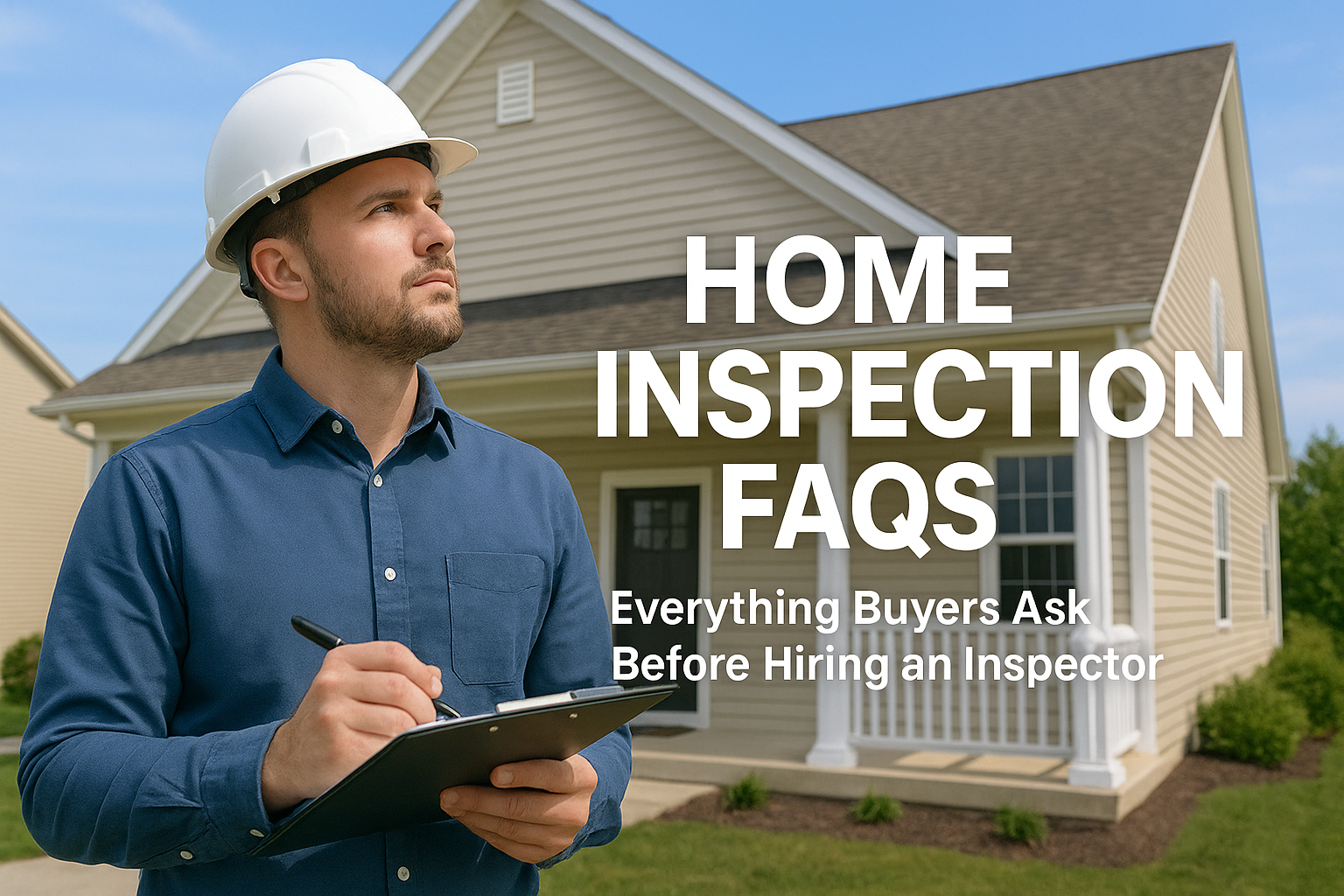Buying a home is one of the most significant investments you will ever make, and ensuring the property is in the right condition is critical before signing the deal. This is where a professional home inspection comes into play. A home inspection gives buyers peace of mind by revealing hidden issues and helping them make informed decisions. But before hiring a home inspector, most buyers have a lot of questions. In this guide, we’ll cover the most common home inspection FAQs, offering detailed answers to everything buyers want to know.
Why Is a Home Inspection Important for Buyers?
A home inspection provides a thorough evaluation of the property’s structure, systems, and safety. From the foundation to the roof, inspectors look for defects, potential hazards, and costly repairs that may not be visible during a casual walk-through. For buyers, this information is crucial: it ensures they are not blindsided by hidden issues after purchase and gives them the leverage to negotiate repairs or adjust the price with the seller.
What Does a Standard Home Inspection Include?
Most buyers wonder what exactly is covered in a home inspection. A professional inspection usually includes:
- Structural components such as walls, ceilings, floors, and foundation
- Roofing system, including shingles, flashing, and gutters
- Plumbing system (pipes, leaks, water pressure, drainage)
- Electrical system (wiring, outlets, circuit breakers)
- Heating, ventilation, and air conditioning (HVAC)
- Interior and exterior features, like windows, doors, and siding
- Basement, attic, and insulation
- Safety concerns, such as fire hazards or potential mold growth
While cosmetic flaws may not always be highlighted, inspectors focus on areas that can impact safety, functionality, or major repair costs.
How Long Does a Home Inspection Take?
The duration of a home inspection depends on the size and condition of the property. On average, a standard single-family home inspection takes between 2 to 4 hours. Larger homes or properties with additional features, such as pools or multiple HVAC systems, may take longer. Buyers are usually encouraged to attend the inspection so they can ask questions and gain a better understanding of the property.
How Much Does a Home Inspection Cost?
Costs vary depending on the property size, location, and the inspector’s experience. On average, buyers can expect to pay anywhere from $300 to $600 for a standard inspection. While this may feel like an additional expense, it is a worthwhile investment when compared to the potential thousands of dollars in unexpected repairs that could surface after the purchase.
Do Inspectors Check for Everything?
A common misconception is that home inspectors can find every single issue. However, a home inspection is not invasive—meaning inspectors won’t tear open walls or dismantle systems. They report on visible and accessible areas. Specialized inspections, such as termite inspections, mold testing, or radon testing, may require separate services. Buyers should ask their inspector upfront about what is included and whether they recommend additional inspections.
Can a Home Inspection Affect the Buying Process?
Yes, absolutely. The inspection report plays a vital role in negotiations. If the report reveals significant issues, buyers can request repairs, ask for a price reduction, or even withdraw their offer if the problems are too severe. A strong inspection report also gives buyers confidence to move forward, knowing the property is safe and in good condition.
Should Buyers Be Present During the Inspection?
It is highly recommended that buyers attend the inspection. Being present allows you to ask questions, get clarifications, and see potential issues firsthand. Inspectors often provide valuable maintenance tips during the walkthrough, which can help you care for your home long after the purchase.
How Do I Choose the Right Home Inspector?
Choosing a qualified inspector is just as important as the inspection itself. Look for:
- Licensing and certifications (if required in your region)
- Experience in the field and familiarity with local building codes
- Positive reviews and references from past clients
- Clear and detailed sample reports
- Insurance and professional liability coverage
Hiring a trusted inspector ensures you receive a comprehensive evaluation and a clear, unbiased report.
What Happens After the Inspection?
Once the inspection is complete, the inspector provides a detailed written report, often with photographs, highlighting both minor and major issues. Buyers should review the report carefully with their real estate agent to decide whether to:
- Request repairs from the seller
- Negotiate a lower purchase price
- Proceed with the deal as is
- Walk away if the problems are too severe
This step ensures buyers make a decision that aligns with their budget and comfort level.
Final Thoughts
A home inspection is one of the smartest steps a buyer can take before making a purchase. It provides transparency, prevents financial surprises, and helps ensure the home you choose is truly the right one for you. By asking the right questions and hiring a certified, experienced inspector, you’ll enter your new home with confidence and peace of mind.
